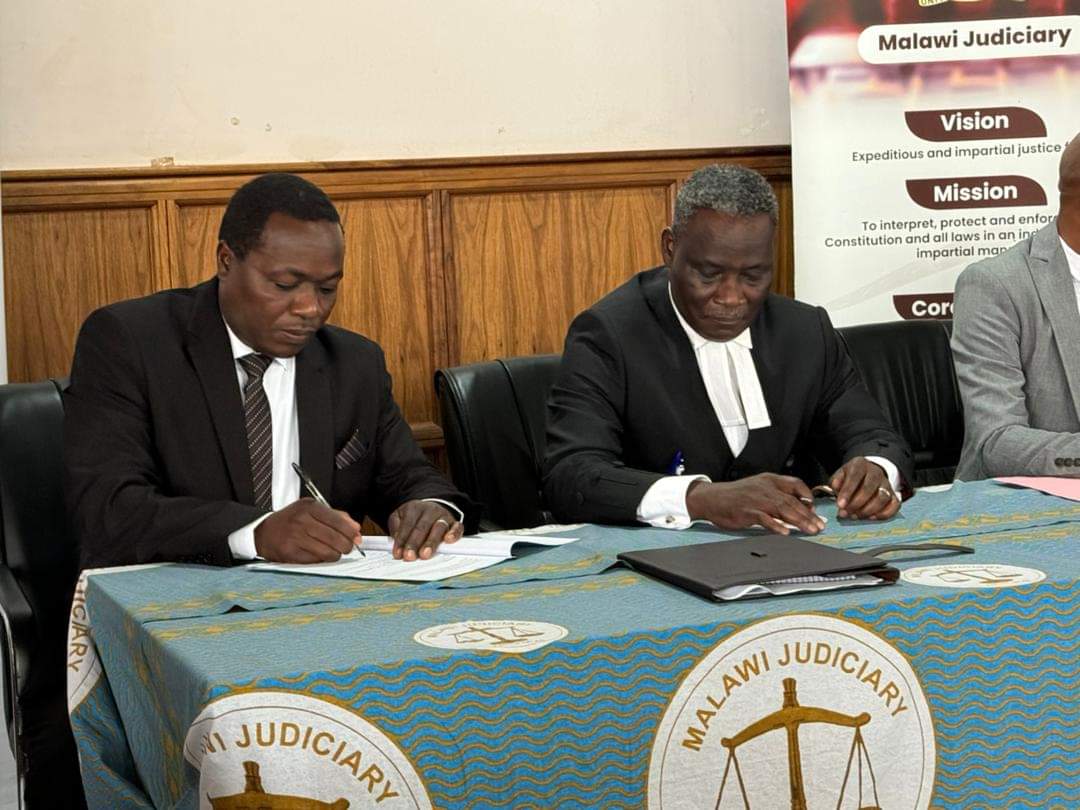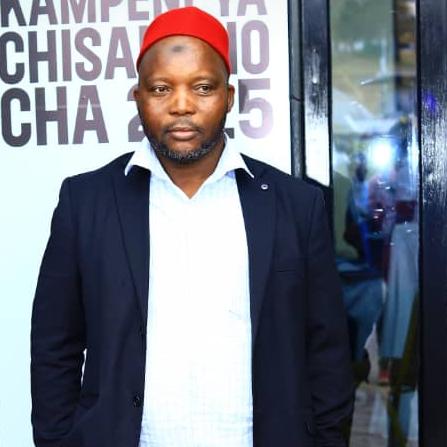By Burnett Munthali
On Monday, February 3, 2025, Malawian activist Bon Kalindo, widely recognized as “The DC,” issued a stirring audio message highlighting the country’s worsening socio-economic crisis. In his address, Kalindo, who had remained silent for two days, explained that he had been conducting extensive research to ensure his statements were fact-based and reflective of the everyday struggles of Malawians. His message was both urgent and frustrated, capturing the growing discontent among citizens.

Kalindo began by sharing his firsthand observations from various parts of the country, where he had interacted with communities to understand their hardships. One of the most alarming issues he raised was the increasing prevalence of witchcraft, which he described as a grave concern affecting many societies. He went further to claim that politicians were involved in these practices, using them as tools for power and control. This assertion not only intensified his broader criticism of the country’s leadership but also reinforced the perception that corruption and manipulation in Malawi extend beyond governance and into the spiritual realm.
However, the most disturbing part of his address was his account of extreme poverty ravaging Malawians. Having traveled to remote areas to assess the situation, Kalindo was deeply unsettled by the severe lack of access to basic necessities such as clean water, food, decent housing, and sanitation facilities. He singled out the Central Region, where he was shocked by the level of deprivation. Ironically, some of the most affected areas were those from which President Lazarus Chakwera originates. Kalindo implored those close to the President to convey these grim realities to him, warning that if the suffering of Malawians continues to be overlooked, it could trigger widespread unrest. He emphasized that the patience of the people was wearing thin, and the growing frustration could soon explode into nationwide protests.
He did not spare cabinet ministers either, accusing them of being out of touch with the realities faced by ordinary citizens. He challenged whether government officials, who frequently celebrate their so-called achievements on national television, truly understand the daily struggles of Malawians. Kalindo noted that while urban dwellers are also struggling, their hardships are minor compared to those in rural areas, where poverty has reached unbearable levels.
One of the most shocking revelations he made was from Manje in Blantyre, where he witnessed desperate people resorting to consuming chemically treated maize seed meant for planting. The well-documented health risks of consuming such maize did not deter them, as hunger had pushed them to the brink of survival. According to Kalindo, this was clear evidence of the government’s failure to address food insecurity, despite repeated claims that maize stocks were sufficient. He dismissed such pronouncements as misleading and an attempt to mask the dire reality facing the nation.
Kalindo also expressed outrage over the recent 16% increase in electricity tariffs, questioning why the government would impose such a burden when Malawians are already grappling with the high cost of living. Additionally, he criticized the controversial reappointment of a dismissed cabinet minister to a board position in a statutory corporation, viewing it as further proof of political favoritism and systemic failure within the administration.
In a scathing critique, he accused many Malawian politicians of having forgotten their roots. He pointed out that some of those in power once knew what it meant to suffer, but after securing positions in government, they have distanced themselves from the very people they once claimed to represent. Their arrogance and indifference to the suffering of Malawians, he warned, would not go unnoticed. Kalindo also issued a stern warning to the ruling Malawi Congress Party (MCP), cautioning that any attempts to rig the upcoming 2025 elections would face serious resistance from a frustrated and disillusioned population. He insisted that Malawians would no longer tolerate deceitful governance.
Despite his strong criticisms, Kalindo acknowledged the efforts of the Minister of Labor, Vitumbiko Mumba, describing him as a “game changer” due to his proactive stance on labor issues. However, he advised Mumba against mixing government responsibilities with political propaganda, urging him to address workplace injustices and improve conditions for employees in various government departments.
Kalindo also challenged Malawi’s continued reliance on foreign aid, arguing that the country must break free from its dependence on external assistance. He criticized government officials for frequently traveling abroad in search of financial support instead of focusing on sustainable local solutions to economic challenges. He pointed to Tanzania as a model of self-reliance, attributing its progress to strong leadership and strategic economic planning.
In conclusion, Kalindo painted a grim picture of Malawi’s current state, expressing deep concern over the persistent poverty and suffering endured by its citizens. He suggested that the country’s leadership should step down, as they had failed to bring meaningful change. Furthermore, he warned against any attempts to manipulate the upcoming elections, predicting that such actions would only lead to national turmoil. His final message was a plea for those in power to listen to the voices of the struggling masses and take urgent action before it is too late.
Bon Kalindo’s latest statement is yet another wake-up call that Malawi’s leaders cannot afford to ignore. Whether the government will respond with concrete reforms remains to be seen. However, one thing is certain: the voices of Malawians, amplified by activists like Kalindo, are growing louder, and their demand for accountability is stronger than ever.




